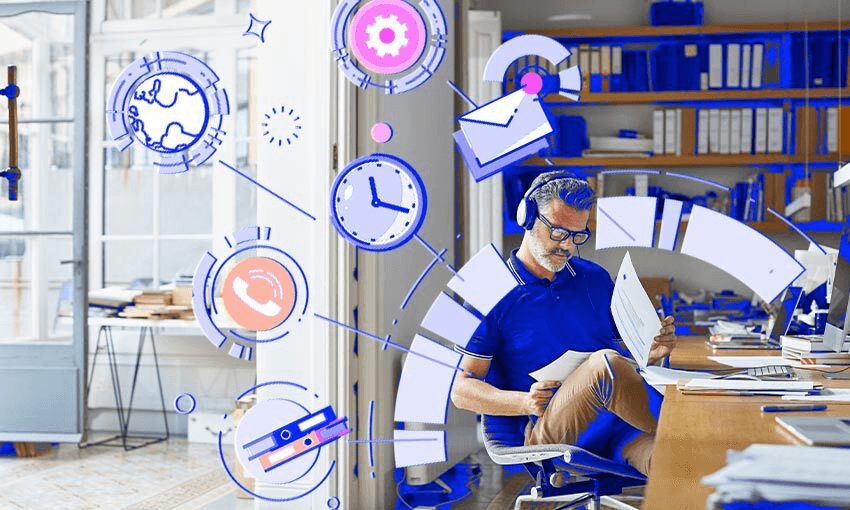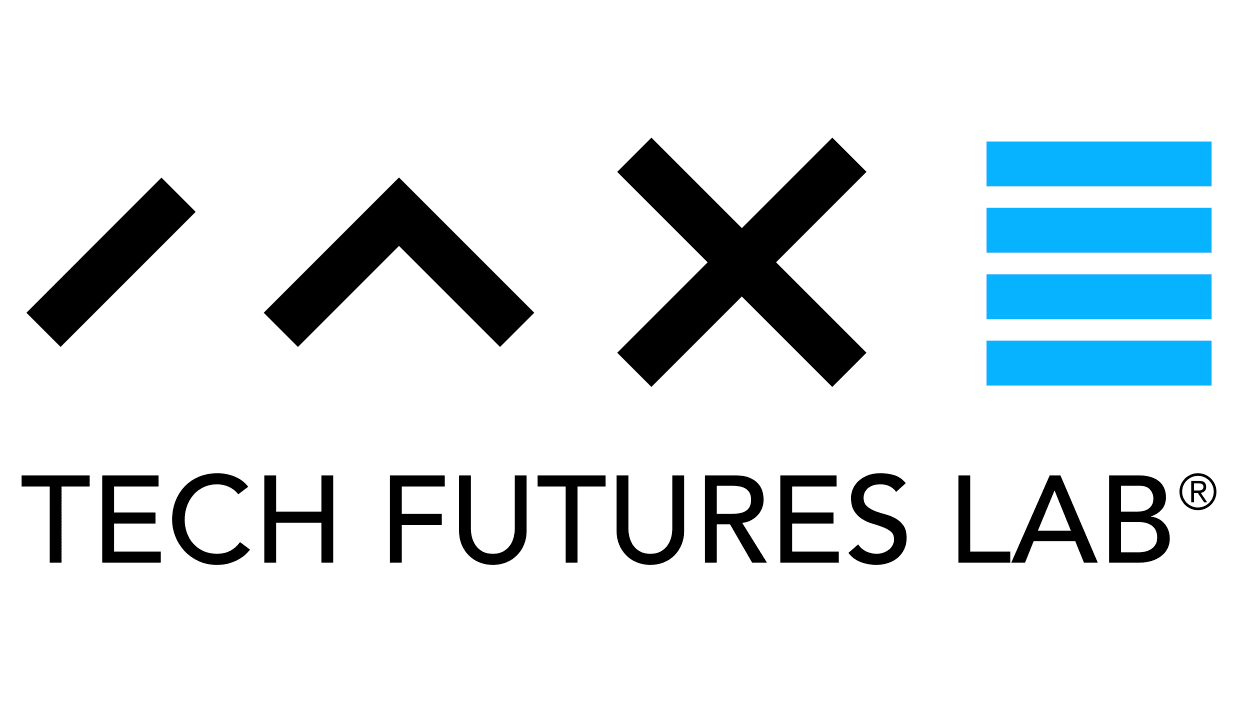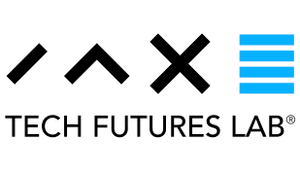Technology is rapidly changing our everyday lives. Two new courses at Tech Futures Lab allow you to keep up with the developments affecting your work, without taking time away from your job.
Technology can be intimidating. Words like “blockchain” and “augmented reality” and concepts like big data and the Internet of Things (IoT) are familiar, but if I’m honest, I don’t actually know what they mean or how they affect me. I’d struggle to explain to anyone how they’re going to shape my industry and my job – even if I know I’m already experiencing their influence.
The idea of returning to study is equally intimidating. I’ve only just finished paying off my first foray into higher education and I definitely can’t afford to take time off work to study again. I’ve already got three degrees, and despite a constant curiosity about the world, surely I don’t need any more qualifications…
The two new micro qualifications from Tech Futures Lab are designed to cure my apprehension towards technology and ongoing education. The Disruptive Technologies Micro-credential and the Internet of Things for Sustainability Micro-credential are 10 week, part-time courses, run entirely online and crafted to allow people already embedded in careers to learn about how the fourth industrial revolution is going to affect their jobs and implement the knowledge immediately at their workplace.
What’s a micro-credential?
Officially created in 2018, they’re an NZQA certified qualification devised to recognise the “achievement of a coherent set of skills and knowledge” in areas of strong need for industry and employers. They’re compact qualifications with a very specific focus on skills and concepts that are not being catered for by mainstream tertiary education.
At Tech Futures Lab the micro-credentials they offer are built to allow students to continue working while studying, and to take the knowledge from the course and apply it directly to their workplace.
These “bite-sized chunks of learning” give students “flexibility and freedom”, allowing them to choose the topics to suit their needs, says Tech Futures Lab national academic manager Hayley Sparks, who helped create the two new micro-credentials alongside industry leaders.
What makes these micro-credentials unique?
Says Sparks: “What makes it special is people who might have an interest in the Internet of Things, or sustainability or generally an interest in tech can come and have an introduction, and see whether a deep dive is something they’d like to do.”
The courses give students the skills they need to understand and embrace the modern forces affecting their jobs and careers. The 10 weeks are split into two parts: the fundamental knowledge on the relevant concepts and tech, and then understanding how they can be used in practice.
“We deliberately design our programmes to be applied. Students take something away and continue to develop it and can build on it,” says Sparks.
“It shows the students how to practically apply the knowledge, to take value from it and see it in the real world.”
Emerging disruptive technologies; is that like when I have to turn the wifi off and on?
It’s a bit more exciting than that, according to Anzel Singh, innovation coordinator at Tech Futures Lab. He describes the concept of emerging disruptive technologies (EDT) as a technological advancement that’s creating significant changes in the way our lives function, the way we work, or the way a sector operates.
Singh points to the medical sector as a good example of an industry going through upheaval courtesy of EDT, which are changing the way the entire system works. From digital consultations and the storage of patient data on the cloud, to developments in rapid Covid-19 testing, technology is changing the way doctors and patients interact and how they relate with the health system.
“That’s what makes it disruptive – the way it changes the way you work. It’s emerging, because while many of these advancements are here already, there’s going to be an even bigger uptake very soon,” says Singh.
So disruption isn’t necessarily bad?
“When people think of disruption, what can come to mind is a force of change. And sometimes that’s a really willing change because it makes your life easier. It’s a disruption that you want,” says Singh.
The courses are a starting point to help people push through the intimidation of new technology so they can engage with EDT and IoT. Across the 10 weeks students are put at the centre of different fundamental ideas and how they work together, and show how they can be applied to their world right now.
“If you don’t know where to start, to where you can even converse with people, that’s where there’s fear,” says Singh. “The process of change can be scary and it takes time and you have to learn new things. When things feel foreign to you that’s where it can be intimidating. People often think it is more difficult than it is to learn about these things.”
Remind me, what’s the Internet of Things?
It’s an ecosystem of integrated technology that allows us to understand and interact with the world in a smarter way, says Sparks.
“The IoT is an umbrella term for a whole lot of technologies that can be connected by a series of networks to collect data on a whole range of variables – environmental, social, economic. That data becomes part of a system that is analysed by other tech – AI, algorithms – and that data is visualised to make sense of it and inform how you do things.”
This can make a production line more efficient, it can make the fertilisation of a farm more environmentally friendly, and a city’s traffic light system smarter. From the technology that monitors the levels of Auckland’s reservoirs and models it against expected water usage and weather patterns, to the smart watch counting our steps and measuring our sleep, these elements make up the Internet of Things.
How does the IoT intersect with sustainability?
“What we want people to think about is the fact that what we’re doing now is not working, it’s not enough. The course asks students to consider how to use tech to enable everyone to thrive, not just survive,” says Sparks.
The micro-credential explores the potential of the IoT to encourage thinking beyond current concepts of sustainability.
“Sustainability is often equated with conservation and the natural environment, but to have a truly thriving ecosystem and community it has to be socially sustainable. It has to be equitable – everyone has to have the same level of access. And it has to make sense economically.”
The IoT uses tech to realise how those different elements can work together. It allows dynamic data to inform strategy and decision making to create more sustainable outcomes.
“We are trying to get people to think holistically.”
Who is the course for?
“It’s for everybody. It gives you a fundamental understanding of a broad array of technology,” says Singh. “It’s about a baseline understanding of what is out there. It’s about trying to demystify the tech that is changing our world.”
The course is for those of us intimidated by how technology is changing our world, and those excited about the opportunity to upskill while working. The micro-credentials are designed to keep you equipped with the skills you need to respond to the technological developments in our world. They’re also stackable and the knowledge and credits acquired may be carried over into Tech Futures Lab postgraduate programmes, says Singh.
“It’s built to help you explore the landscape and feel confident about speaking with knowledge about the technology that is impacting your world. If you choose to explore it further you have this base understanding. We’re trying to give you that tool kit to be that explorer and lifelong learner.”


